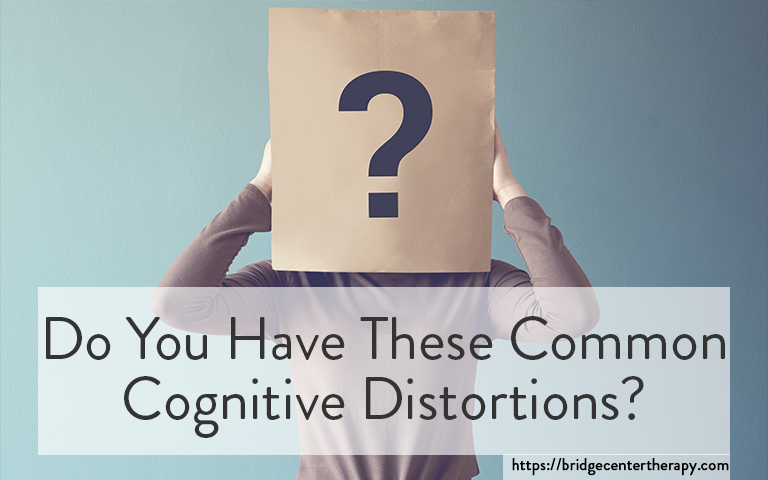
There are some occasions when you may not want to trust what your brain is telling you. Cognitive distortions are habitual errors in thinking that cause negative feelings. Unless you learn to notice them, they can have powerful negative effects on your mood and life. Here are some common cognitive distortions to help you understand yourself better and improve your decision making.
Speak to one of our therapists today.
These appear as a set list of specific rules about how each person should behave. Other people breaking these rules make you angry and you feel guilty about breaking your own rules.
“Black-and-White-Thinking” is your inability or unwillingness to see shades of grey. You see things in terms of extremes. Everything is either fantastic or awful.
Whatever you feel you believe to be true unconditionally. Emotions are extremely strong and they take over your thinking and leave no space for rationality and logic.
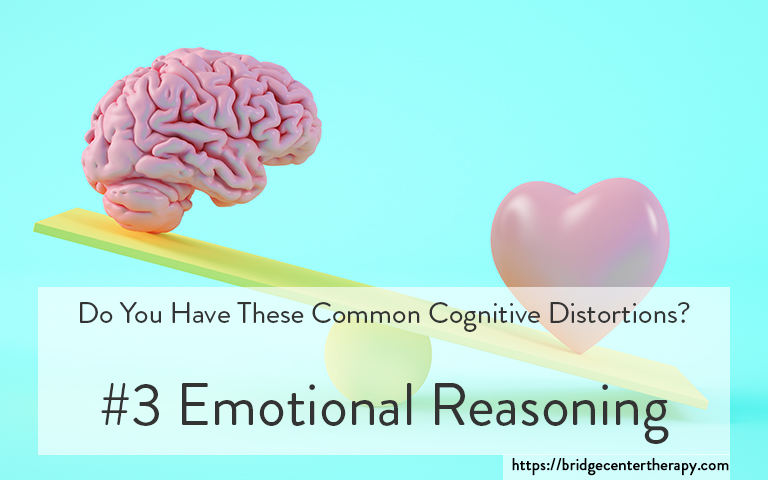
As the name implies, this involves taking everything personally or assigning blame to yourself without any logical reason to believe that you are to blame.
The assumption that this is an inherently fair world is not based in reality. You may have negative feelings when you are faced with proof that life is sometimes unfair.
You dread and assume the worst when you are faced with the unknown. When you catastrophize, ordinary worries can quickly escalate.
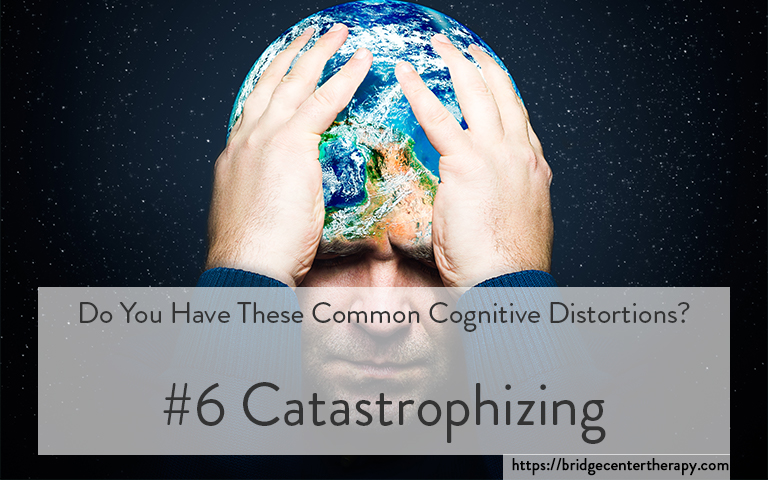
This happens when you make a rule after a single event or a simple series of coincidences. You use the words “always” and “never” frequently to generalize one instance as an overall pattern.
8- Mental Filters
This is the opposite of overgeneralization. You take one single event and focus on it exclusively as the basis for all your beliefs, while you filter out everything else.
You tend to believe that you will know what will happen and you always foresee a negative outcome. You naturally assume that things will always turn out poorly.
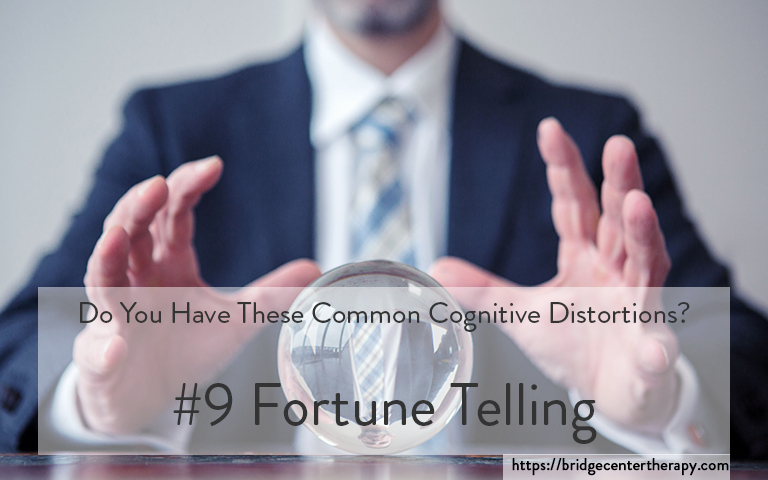
10- Mind Reading
When you assume that you always know what others are thinking, you are mind reading. It may be helpful for you to consider all the evidence and not just the parts that confirm your suspicions.
You ignore or invalidate the good things that have happened to you. You don’t ignore or overlook the good things, but you do find ways to explain it away as a fluke or luck.
You attribute all positive events to your personal character. You see any negative events as outside of your control. You may live in a distorted reality where you can do no wrong.
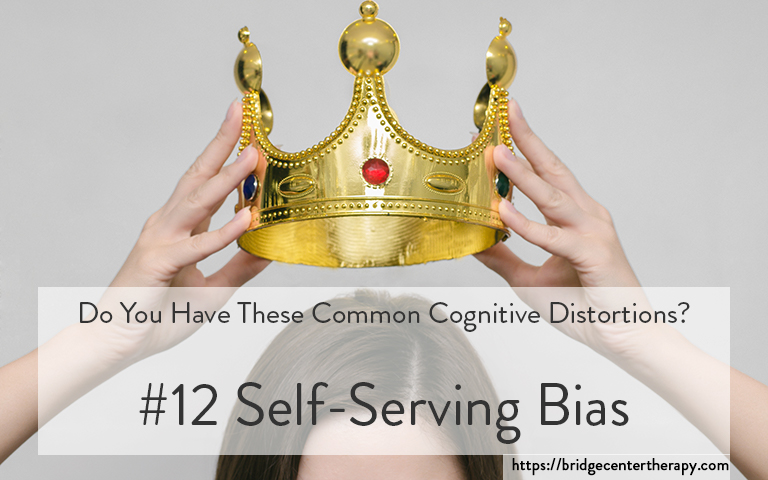
You focus on one single negative detail and take it out of context. You ignore other more important and positive details to define the whole situation based on the one negative aspect.
14- Inexact Labeling
Your reaction is proportionate to a descriptive label you applied to the event rather than the actual intensity of the traumatic situation. It is an extreme interpretation
15- Control Fallacy
You see everything as either internally or external controlled. You may either put yourself at fault for things that are out of your control, or blame everyone else for your own poor performance.
Need Help? We Can Help.
These inaccurate patterns of thinking and believing are common, but their potential impact should not be underestimated. If you feel that some of these cognitive distortions are contributing to feelings of anxiety and depression seek a qualified therapist to help you.
Do you need help? Call (510) 497-4174 today to schedule a free consultation with one of our therapists.
If you have any questions or require more information, please contact Lani here: lani@bridgecentertherapy.com
